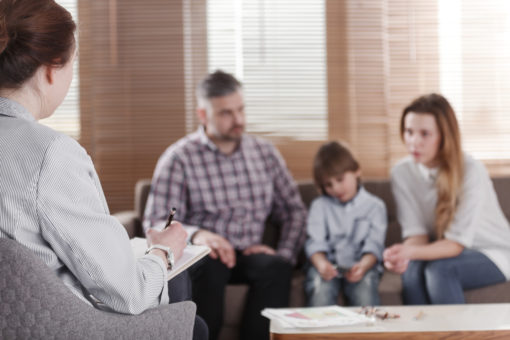Parenting a child with reactive attachment disorder can be extremely challenging and at times, hurtful. It is common for these children to act out towards their parents, act extremely cold around their parents and for parents to feel guilty and overwhelmed by what may have caused RAD in their child at such a young age. Reactive attachment disorder parenting takes patience, understanding and the ability to separate emotions from the facts in regards to this disorder. Children with RAD may have experienced some trauma in early childhood by their caretakers, whether it is physical trauma, neglect, emotional trauma or sexual abuse. These children are incredibly hesitant to form attachments to any caregiver and instead may latch on to strangers, which can be exceedingly hurtful for the parents.
9 Tips for Raising a Child with Reactive Attachment Disorder
- Children with RAD behave very differently outside the home. Others often describe them as “charming” and “delightful” when things in the house are decidedly different. This dichotomy can further isolate parents as they worry that others won’t believe them if they share what the child is like at home.
- Parents of children with RAD carry tremendous guilt. It is a heavy burden to carry the weight of something that was done to your child by someone other than you in a time before you even met them.
- Make it clear to others that if your child latches onto them, they need to hand the child back to you. When others return the affection to your child, it may be damaging your relationship with your child.
- Parents with children who have RAD often do not share the truth about how bad their child’s behavior is out of fear of being judged. Remember that you are not alone.
- It is essential to understand that traditional parenting, including behavior modification and family traditions do not work for children with RAD.
- Even though you love your child with your whole heart, this love alone is not enough for your child to overcome RAD. Professional therapy is needed.
- Children who have RAD can be expert manipulators, and as a parent, you may feel like you are a detective in your own home.
- Children with RAD can place a lot of strain on your marriage and relationships, and therefore, it is crucial to set aside time for these relationships.
- Find respite care and use it so you can have a break. Make sure that the respite caregiver knows a bit about RAD and will be willing to follow your directions for what works best for your child. Warn them that “typical” parenting strategies don’t work for RAD children.
Support for Parenting a Child with RAD
Not only will you need respite caregivers to help you implement your coping strategies for parents of kids with RAD, but you will also need an entire support network. You may need someone to call on bad days who will not judge you or your family harshly. Also, you will need an experienced therapist to help you work through the emotional conflicts that parenting such a challenging child brings. Therapy for your child and yourself is non-negotiable when dealing with RAD. Find a support group of other parents with RAD so you can find a friend who can understand what you are going through.
If you are looking for support for yourself or your child with reactive attachment disorder, Discovery Mood & Anxiety Program is here to help.
More from Discovery Mood & Anxiety Program:
- Reactive Attachment Disorder in Adults
- Signs, Symptoms and Causes of Reactive Attachment Disorder
- Children with Reactive Attachment Disorder: What is RAD?
